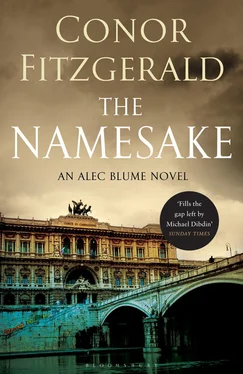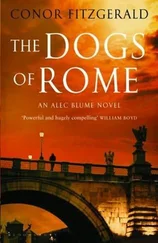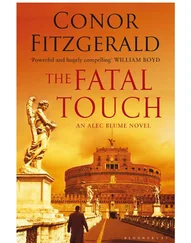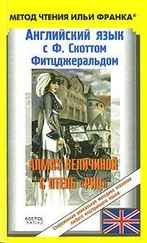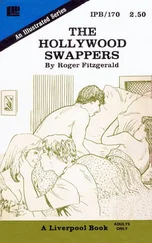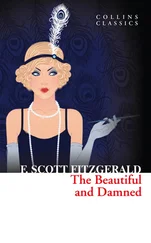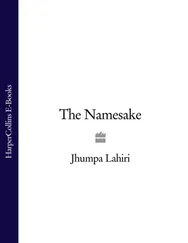Conor Fitzgerald - The Namesake
Здесь есть возможность читать онлайн «Conor Fitzgerald - The Namesake» весь текст электронной книги совершенно бесплатно (целиком полную версию без сокращений). В некоторых случаях можно слушать аудио, скачать через торрент в формате fb2 и присутствует краткое содержание. Жанр: Полицейский детектив, на английском языке. Описание произведения, (предисловие) а так же отзывы посетителей доступны на портале библиотеки ЛибКат.
- Название:The Namesake
- Автор:
- Жанр:
- Год:неизвестен
- ISBN:нет данных
- Рейтинг книги:3 / 5. Голосов: 1
-
Избранное:Добавить в избранное
- Отзывы:
-
Ваша оценка:
- 60
- 1
- 2
- 3
- 4
- 5
The Namesake: краткое содержание, описание и аннотация
Предлагаем к чтению аннотацию, описание, краткое содержание или предисловие (зависит от того, что написал сам автор книги «The Namesake»). Если вы не нашли необходимую информацию о книге — напишите в комментариях, мы постараемся отыскать её.
The Namesake — читать онлайн бесплатно полную книгу (весь текст) целиком
Ниже представлен текст книги, разбитый по страницам. Система сохранения места последней прочитанной страницы, позволяет с удобством читать онлайн бесплатно книгу «The Namesake», без необходимости каждый раз заново искать на чём Вы остановились. Поставьте закладку, и сможете в любой момент перейти на страницу, на которой закончили чтение.
Интервал:
Закладка:
Ruggiero blinked his eyes in acknowledgment of the sense of shock that must have been felt.
‘Now it turns out,’ continued his father, ‘that for all the rumours, no one had ever really asked her about what happened that night in 1964. Sometimes people prefer not to remember. And yet, this forgetting was also the right thing to do. The slaughter that night was a terrible act, but it had its historical causes and necessities. It was also the beginning of a restructuring and a reexamination of conscience that has served everyone well since.
‘The people of the town were sickened by this woman’s blatant act of treachery, but they were also dismayed in their hearts because over the years her talk of seeing her son in the company of saints had assured people that the child was at peace with God, and was accompanying his mother through the rest of her life, ageing with her, until she, too, would be at peace. But when the benighted old woman went to the Carabinieri, she told them her son had been seized but not killed by Domenico Megale. She said that when Domenico burst into her bedroom, she was suckling the child. He was so struck by the sanctity and tenderness of the image that he found himself rooted to the spot, or so she claimed. She approached him and offered the child in exchange for her own life and a pledge to remain silent for ever. She then commended her infant into the hands of Domenico and said he was now the father. She told the Carabinieri that Domenico Megale had taken her child and left. Upon leaving, he had warned her never to come looking for the child, but now she was breaking that pledge.
‘The woman’s husband went to Megale and begged forgiveness. The people in the village were instructed to shun the deluded woman, but she seemed not to notice. A local magistrate opened an investigation, letting it be known that he did so with reluctance. He sent two young Carabinieri to ask Megale about the night in question. Megale told them he had no memory of the night, lost in the mists of time. The case was archived.
‘Then in 1990, the woman invited in television reporters. You probably know the show, Chi l’ha visto, which is dedicated to tracking down missing persons.’
‘It’s still on,’ said Ruggiero.
‘Back then it was a new show, presented by an interfering albino bitch called Donatella Raffai. They sent down a team of reporters who interviewed the mother. Now she aggravated the situation by speaking far too freely about the night of the massacre, naming names and describing the abduction of her son, and saying how she was warned never to look for him. The national newspapers took up the story, and reporters swarmed the streets until our dignified reticence, as well as some low-key resistance that took the form of attacks on their vehicles and equipment, persuaded the vultures to fly back to Rome and Milan. The husband, now in his late sixties, asked permission of Don Matteo to divorce; it was not given, which was unlucky for him.
‘The woman, prodded and urged by the vile reporters who were too abject to visit us, went up to Rome. There, in the studio, she allowed them to show the face of the man she claimed was her son, a man whom they had covertly filmed as he went about his business in the village, and a man whose face was familiar to everyone. That man was called Tony, the younger of Megale’s sons.’
‘Enrico’s father,’ said Ruggiero.
‘When he saw his Tony on television like that, Megale, who around this time people started calling u Vecchiu because by then he had lost his wife to cancer — same as would happen later to his daughter-in-law — and looked far older than he really was, sued the television station for defamation, and the case dragged on for five years before ending in a settlement in his favour. Around this time, too, Communism collapsed in Europe and Megale foresaw the great fortune to be made from buying property and businesses in East Germany, and moved with his younger son, Tony, to Dusseldorf, where there was already a small Calabrian presence. He left Pietro here. As for the case against RAI Television, the judges declared that Tony had become an object of hatred for a woman devastated by loss and childlessness. She stood on the steps of the court with a placard on which she had written ‘No Hatred Just a Mother’s Love’. And the newspapers ran with that line, of course. God, they loved it. After the scandal had died down, Tony married a girl, Angela Mancuso, who came from an important family settled in Milan. Six months after, baby Enrico arrived, but Tony was already in Germany with his old man. He came down for the christening, though. His next visit was for Angela’s last day on this earth and the funeral two days later. Cancer like wildfire through her body. I remember seeing her, thin, yellow, suddenly old. When she died, Zio Pietro and Zia Rosa decided they would take care of the baby.
‘A few months later, the ignorant old woman, uncaring about Tony’s bereavement, crawled out into the open again to say Enrico was her grandson. Encouraged no doubt by a reporter, because she could not even read and knew nothing about these things, she demanded a DNA test, which Domenico, Tony, Pietro and Zia Rosa all turned down with contempt.
‘By now, the old woman’s husband was having difficulty living in the town. His failure to exercise his authority over the woman was punished, so they say, by seven zaccagnate on his chest and shoulders, his age being taken into consideration, followed by expulsion. He stayed in the village with his wife, a humiliated being despised by all. Can you remember what happened in the end?’
Ruggiero remembered it as if it was yesterday. ‘The woman and her husband were both stabbed to death on the same night. Him on the way back from the bar, her in her bed. It was in September, not long after the Feast of the Madonna di Polsi. School had just reopened.’
‘Almost correct. The old man was shot at close range with a low-velocity bullet. Just one small entry wound at the back, no sign of violence from the front. But the woman was stabbed repeatedly in the belly and groin as she lay in her bed. The killer opened her up and tore her very insides out. It was a cruel thing. There was a big funeral and, even though they had no family, everyone turned up, including Tony Megale. He had recently returned from Germany. He had come home several days before the killing took place to celebrate the Madonna di Polsi — and visit Enrico, of course. He spent a day in custody being questioned. On the same day he was released, he asked me if I would join them in Germany, and I did.’
‘Did he ever tell you anything about his mother?’
‘So now you think that that woman was his mother?’
‘Wasn’t she? Isn’t that what you just told me?’
‘Draw your own conclusions quietly, decide on your own course of action quietly, act quietly.’
‘So you never asked Tony?’
‘You are still asking too directly. I have never even spoken of the story to anyone until this moment. In Germany, u Vecchiu treated me well, but I soon saw it would be necessary for me to pursue a different path from Tony, and that is what I have done. Our paths often cross, but I thought we had succeeded in dividing our responsibilities with respect and without rancour. I may have been wrong.’
‘Have you and Enrico’s dad fallen out?’
‘Too many direct questions. If you ask direct questions, you’ll be disappointed by the evasive and uncertain answers. Sometimes there are no answers, and in the meantime, people will stop talking to you. Learn to infer.’
‘ Megale u Vecchiu is now truly old,’ said Ruggiero.
‘That’s more like it. Now that he is a free but ailing man, Tony’s time may have come. At the Polsi summit, Tony may announce his intention to take over the German colony from his father. Pietro will never raise any objection, because he fears Tony. Tony seems to think this is a good thing, but having members of your own family fear you is an evil.’
Читать дальшеИнтервал:
Закладка:
Похожие книги на «The Namesake»
Представляем Вашему вниманию похожие книги на «The Namesake» списком для выбора. Мы отобрали схожую по названию и смыслу литературу в надежде предоставить читателям больше вариантов отыскать новые, интересные, ещё непрочитанные произведения.
Обсуждение, отзывы о книге «The Namesake» и просто собственные мнения читателей. Оставьте ваши комментарии, напишите, что Вы думаете о произведении, его смысле или главных героях. Укажите что конкретно понравилось, а что нет, и почему Вы так считаете.
